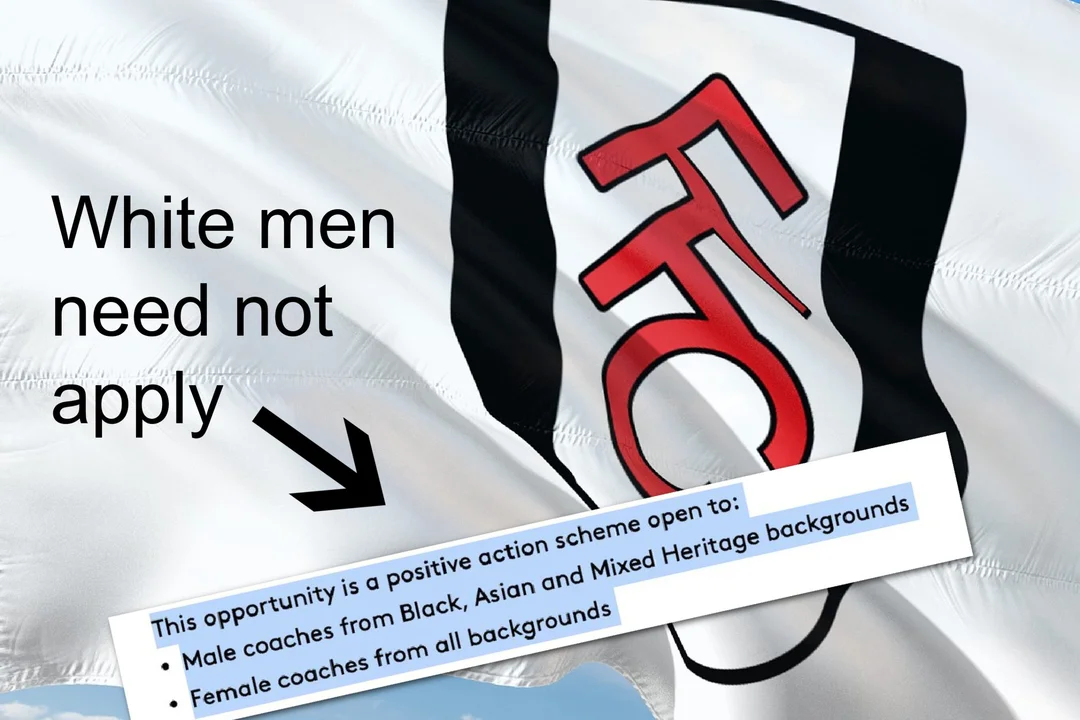
Are Premier League Clubs Promoting Diversity or Discrimination?
The Premier League is facing a burgeoning controversy over its Coach Inclusion and Diversity Scheme (CIDS), with accusations that it unlawfully excludes white men from applying for coaching positions. This initiative, aimed at increasing diversity among coaches, has ignited a heated debate over the balance between promoting equality and ensuring fair hiring practices.
Recent revelations have surfaced showing that several prominent clubs, including Manchester United and Liverpool, have been advertising coaching roles explicitly stating they would only accept applications from individuals of Black, Asian, and mixed heritage, as well as women. A particularly striking example involved an expired Manchester United advert for a youth coaching role, which explicitly stated: "Applications will only be accepted from individuals from those backgrounds." Similar wording was found in job advertisements from other clubs like Tottenham Hotspur and Aston Villa.
Rupert Lowe, the MP for Great Yarmouth, has been a vocal critic of this policy, labelling it as "anti-white racism". This statement draws attention to a broader concern about how diversity initiatives might inadvertently foster new inequalities. Lowe argues that while addressing underrepresentation is imperative, it should not come at the cost of excluding applicants based solely on their ethnicity.
According to the Equality and Human Rights Commission (EHRC), while positive action in hiring practices is permissible under certain conditions, it cannot outright restrict job opportunities to specific groups. The EHRC warns that advertisements must encourage applications from all candidates while highlighting a commitment to support those from underrepresented backgrounds.
The Premier League maintains that its CIDS is a crucial aspect of its No Room for Racism campaign, designed to elevate the visibility of underrepresented coaches in the footballing world. Since its inception four seasons ago, the scheme has supported over 80 coaches, with 75 now engaged in full-time roles within professional football. Yet, the legality of the scheme’s implementation is now under scrutiny, with specific job adverts potentially contravening the guidelines set out by the EHRC.
The wording used in these advertisements has sparked discussions among the clubs involved. Sources suggest that many of them relied on templates provided by the Premier League, which supposedly have undergone updates aimed at rectifying earlier criticisms. However, the functionality of these updates remains a point of contention, particularly after Ipswich Town removed a job advert amid backlash over its phrasing.
As more clubs are scrutinised for their employment policies, the implication of these actions extends beyond individual careers; it presents a larger question about the direction of diversity initiatives in sport. Can the Premier League truly enhance inclusivity while also respecting fair employment practices for all individuals? As of now, Liverpool and other clubs are expected to adapt their advertisements soon as the conversation unfolds.
The ongoing debate around the CIDS highlights an essential discourse in contemporary sport: the path towards an inclusive environment must be navigated with fairness and transparency. As the Premier League looks to its future, stakeholders may need to reconsider how best to achieve these aims harmoniously.
What do you think about the implications of the Coach Inclusion and Diversity Scheme? Does the pursuit of diversity risk creating new forms of exclusivity? Share your thoughts in the comments below.